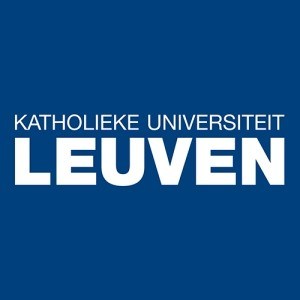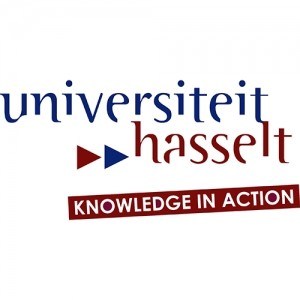Photos of university / #kuleuven
The Master of Science in Bioinformatics at KU Leuven offers an in-depth exploration of the interdisciplinary field that combines biology, computer science, mathematics, and statistics to analyze and interpret biological data. This advanced programme is designed to equip students with the essential skills to develop computational methods and tools for understanding complex biological systems, particularly in areas such as genomics, proteomics, and systems biology. Students will gain a solid foundation in molecular biology, algorithms, data analysis, and programming, enabling them to address some of the most challenging questions in contemporary biosciences. The curriculum emphasizes hands-on training through practical projects, internships, and collaborations with industry and research institutions. Through these activities, students learn to apply theoretical knowledge to real-world problems, from sequencing and analysis of genetic data to modeling biological networks. The programme also covers topics such as machine learning, data visualization, and database management, ensuring graduates are well-prepared for careers in research, healthcare, biotechnology, or pharmaceutical industries. The interdisciplinary nature of the programme encourages collaboration across scientific disciplines, fostering innovation and critical thinking. KU Leuven's state-of-the-art facilities and strong connections with the biomedical sector provide students with excellent opportunities for internships, research projects, and professional development. Graduates of this programme are highly sought after by employers worldwide, as they possess the expertise needed to manage and interpret vast biological datasets, contributing to advancements in personalized medicine, drug discovery, and biological research. With a comprehensive curriculum, experienced faculty, and a stimulating academic environment, the Master of Science in Bioinformatics at KU Leuven prepares students to become future leaders in the rapidly evolving field of biological data science.
Reorientation Package
The student takes maximum 26 ECTS from this group.
The Reorientation gives students the additional basis in disciplines in which they had no training during their Bachelor's programme. The complete basis is essential to follow further courses in this master. The Permanent Education Committee (POC) determines a specific programme for every student, based on their previous education. Following approval, these courses are mandatory for the student to finish the master.
Students in the track Engineering only choose courses from the Reorientation Package Biology. In addition they choose mathematically or statistically oriented optional courses, to be selected from a limited list.
Students in the track Bioscience Engineering choose only courses from the Reorientation Packages Information Technology and Biology. In addition they choose mathematically or statistically oriented optional courses, to be selected from a limited list.
Students in the track Science may choose courses from all Reorientation Packages up to 26 ECTS. If the student needs less than 26 ECTS, remaining credits can be chosen from a list of optional courses.
Reorientation Package Biology
- Structure, Synthesis and Cellular Function of Macromolecules
- Basics of Biological Chemistry
- Basic Concepts of Cell Biology
- Introduction to Genetics
- Gene Technology
Reorientation Package Statistics
- Univariate Data and Modelling
Reorientation Package Mathematics
- Linear Algebra
- Calculus
Reorientation Package Information Technology
- Object Oriented Programming
- Basic Programming
- Database Management
Reorientation Package: Optional Courses
The student supplements his reorientation package up to 26 ECTS with courses from this group. The suggested package is presented to the POC.
This group consists of a number of courses related to Bioinformatics which are selected by the POC of the MSc in Bioinformatics from other English study programmes organized at KU Leuven.
Students in the tracks Engineering and Bioscience Engineering choose at least 5 ECTS in mathematically or statistically oriented courses.
Common Package
Biology Module
- Molecular Interactions: Theories and Methods
- Bio-Molecular Model Building
- Model Organisms
Statistics Module
- Dynamical Systems
- Statistical Methods for Bioinformatics
- Machine Learning and Inductive Inference
- Applied Multivariate Statistical Analysis
- Support Vector Machines: Methods and Applications
Bioinformatics Module
- Practical Computing for Bioinformatics
- Omics Techniques and Data Analysis
- Management of Large-Scale Omics Data
- Bayesian Modelling for Biological Data Analysis
- Evolutionary and Quantitative Genetics
- Comparative and Regulatory Genomics
- Integrated Bioinformatics Project
Master's Thesis
Requirements
- With the exception of native English speakers or holders of accredited degrees taught in English, students should present results of a test of English proficiency (TOEFL / IELTS) at or exceeding the following scores: TOEFL (Computer-based test 213 pt., Internetbased test 79 - 80 pt., Paper-based test 550 pt.) or IELTS (6.5 - 7 pt.)
- Bachelor's degree
- All applicants (EEA and non-EEA) will have to pay an application fee of 50 € to process their file.
- PDF scans of your diplomas and transcripts of academic records
- PDF scan of the translation of your diploma and official transcripts
- The PDF scans of the TOEFL or IELTS certificates have to be uploaded in the web application Applicant. The original TOEFL or IELTS certificates have to be sent directly by ETS or by the official IELTS test centre administered by The British Council or IDP Education to International Admissions and Mobility at KU Leuven. Alternatively, you can also request ETS or the British Council to make your test result available to KU Leuven online, so we can verify your result via the online verification tool.
- If you still have to take the test by the time you want to submit your application file, upload a proof of registration for the TOEFL or IELTS test in the meantime. The proof of registration should mention the date when you will be taking the test.
- PDF of the proof of payment of the application fee made either via bank transfer or via credit card
- PDF scan of the identity page of your passport
- PDF of your motivation letter (recommended size: one A4 page)
- PDF of your CV
Funding options for the Master of Bioinformatics at KU Leuven include a variety of scholarships, grants, and financial aid programs aimed at supporting both domestic and international students. KU Leuven offers several merit-based scholarships specifically for international students, such as the KU Leuven International Master’s Scholarship, which provides partial tuition fee waivers to outstanding candidates. Additionally, students can apply for government-funded scholarships from their home countries, which are often available for students pursuing postgraduate studies abroad. The university also collaborates with various organizations and industry partners to provide internship opportunities and sponsored research projects, which can include financial compensation or funding support.
Students are encouraged to explore funding opportunities through the KU Leuven scholarship portal, where a comprehensive list of available scholarships, including eligibility criteria and application procedures, is regularly updated. Besides university-specific funding, students may seek external funding such as Erasmus+ programs, which support mobility and exchange programs within Europe. Moreover, students from European Union member states frequently have access to grants and loans managed by national or regional authorities to help cover tuition fees and living expenses.
KU Leuven also provides financial guidance and counseling services to help students identify suitable funding options and prepare successful applications. Many students rely on a combination of these funding sources to finance their studies, including part-time work opportunity within or outside the university, which is feasible given the flexible schedule of the program. International students are advised to start seeking funding options early, as application deadlines and documentation requirements vary. In summary, the financing landscape for the Bioinformatics program at KU Leuven is diverse, offering numerous possibilities for students to fund their education through scholarships, grants, external funding sources, and part-time employment.
The Master of Science in Bioinformatics at KU Leuven is an advanced program designed to equip students with comprehensive knowledge and practical skills in the interdisciplinary field of bioinformatics. The curriculum combines elements of biology, computer science, and mathematics to enable students to analyze and interpret complex biological data. This program prepares graduates for careers in research, healthcare, pharmaceuticals, and biotechnology industries, where they can contribute to cutting-edge developments in personalized medicine, genomics, and systems biology. The program emphasizes hands-on training through laboratory work, computational projects, and internships, ensuring that students are well-versed in the latest bioinformatics tools and techniques. Students will learn about sequence analysis, structural bioinformatics, data mining, machine learning applications, and biological databases, along with gaining an understanding of molecular biology and genetics. The program is typically structured over two years, with coursework, research projects, and a master's thesis component. KU Leuven's strong research environment and collaboration with industry partners provide students with valuable networking opportunities and exposure to real-world challenges. Graduates of this program will be prepared to pursue careers in academia, research institutes, healthcare organizations, and biotech companies, or to continue their studies at the doctoral level. The program is offered in English and is aimed at students with a background in biology, computer science, or related fields who wish to specialize further in bioinformatics. The interdisciplinary nature of the program reflects the evolving landscape of life sciences and the increasing importance of data-driven approaches in biological research and medicine.



